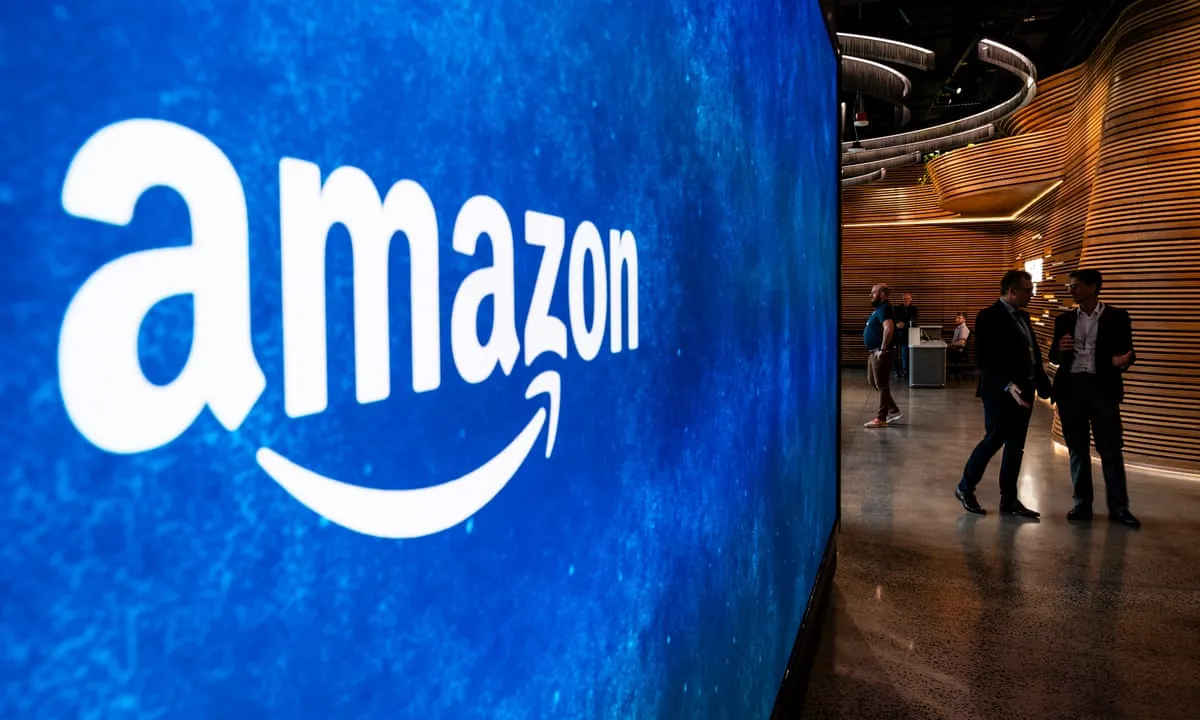In today’s stock market, where artificial intelligence dominates the narrative, Amazon.com Inc. is finding itself left behind.
The e-commerce giant’s shares have trailed the Nasdaq 100 Index for most of the year, and the gap has widened even further in the two weeks following Amazon’s disappointing earnings report on July 31. While the tech-heavy benchmark has surged nearly 13% year-to-date, Amazon has managed only about a 5.5% gain.
Currently, the stock ranks in the lower half of Nasdaq 100 performers and trades at one of its steepest discounts to the index on record. That’s a striking contrast for a company that, for nearly two decades, enjoyed a hefty premium over its peers. Today, Amazon is valued at roughly 26 times forward earnings estimates, compared with more than 27 times for the Nasdaq 100.
The primary reason for the recent slide? Slower-than-expected growth in Amazon Web Services (AWS), its highly profitable cloud-computing arm. The softer results have fueled concerns about market share erosion, and many investors are questioning why Amazon’s big bets on AI aren’t translating into the same financial gains seen by rivals like Microsoft Corp. and Meta Platforms Inc.
Adding to the pressure, some analysts argue that Amazon’s greatest strength its sprawling business portfolio is actually working against it.
“For a lot of investors, Amazon just isn’t a pure-play way to play a theme you believe in,” said Eric Clark, portfolio manager at the Rational Dynamic Brands Fund. “People want purity in their investments. And if you want that, Amazon looks like a company that’s watered down by all the different businesses.”
While Amazon still generates most of its revenue from e-commerce, the company has aggressively expanded into areas ranging from AWS to Whole Foods. Just last week, it announced plans to more than double the number of cities offering same-day grocery delivery. Yet in an era where AI-focused growth dominates investor sentiment, this diversification model is starting to look less compelling.
Even within cloud computing, Amazon’s performance has lagged its peers. Although AWS remains the industry leader in terms of scale, its 17% revenue growth in the second quarter was overshadowed by rivals. Microsoft’s Azure reported a 39% increase, while Google Cloud jumped 32% during the same period.
Meanwhile, companies heavily investing in AI infrastructure have seen their stock prices soar. Oracle Corp. and CoreWeave Inc. are prime examples. Oracle recently struck a major deal with OpenAI to provide 4.5 gigawatts of additional U.S. data center capacity, pushing its stock nearly 50% higher this year. CoreWeave backed by Nvidia and specializing in cloud computing has more than doubled in value since its March IPO.
“This new cohort of hyperscalers are going to be the companies we’re talking about in five years’ time,” said Clare Pleydell-Bouverie, co-manager of the Liontrust Global Innovation team. “We’re not seeing the same AI-induced acceleration from Amazon.”
Still, optimism for the long term persists. Many investors believe Amazon’s heavy AI investments will eventually enhance operational efficiency and improve customer targeting across its various businesses.
The stock remains a Wall Street favorite, with over 90% of the 82 analysts tracking it issuing a buy rating and none recommending a sell. That’s a stronger consensus than even Meta or Alphabet Inc., based on Bloomberg data.
For Clark, the current environment makes Amazon look “underappreciated.” He argues that patience will pay off, particularly when AWS begins reaping the benefits of its AI initiatives.
“It isn’t a good idea to bet against AWS,” he said.

Subscribe to our newsletter!
As a leading independent research provider, TradeAlgo keeps you connected from anywhere.








